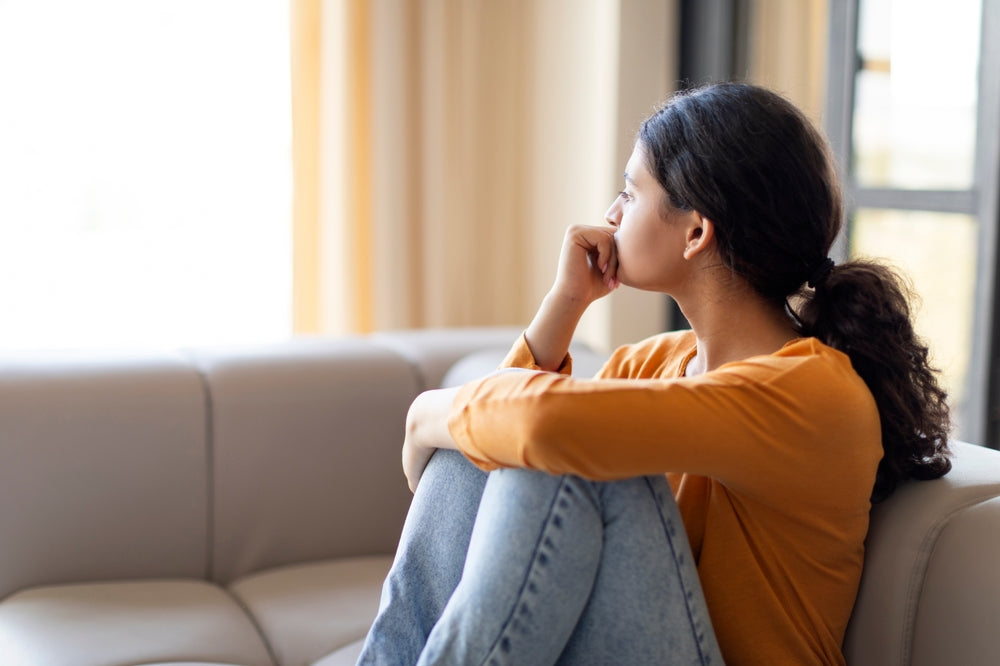November and its challenges
After the excitement of Halloween, we've all found November to be rainy and gloomy, and winter to be full of misfortunes: we have less energy, we're bored, we get a little depressed. But for some people, this temporary feeling of low spirits lingers on until spring, with all its symptoms, and the joy of life starts to fade. When can we talk about seasonal depression, and what solutions are available?
SAD and science
In 1984, Dr. Norman E Rosenthal, a researcher at the National Institute of Mental Health in South Africa, established a link between the period of light and the human biological clock in patients suffering from SAD. This theory can easily be applied to us here in Quebec, where periods of sunshine dwindle to a trickle in early autumn, making winter an eternal bore until spring.
The influence of light on mood
According to Dr. Rosenthal, light sends electrical signals to neurotransmitters via the retina, which becomes hypo- or hypersensitive. As the days wane in autumn, with fewer periods of sunlight, the body produces less serotonin, the hormone of pleasure, energy and joie de vivre. On the other hand, the epiphysis secretes more melatonin, which has negative effects on mood, increasing the need for sleep, carbohydrate consumption and depression.
Impact in Quebec
In Quebec, between 2% and 10% of the population is directly affected, mostly women (70-80%) under 55, with an average age of 40. Of this total, 10% of people will need to be hospitalized, while the vast majority function at half capacity, going about their daily tasks with little enthusiasm.
Symptoms of SAD
Before your doctor diagnoses you with Seasonal Affective Disorder (SAD), let's do a little test: do you recognize yourself in this list of factors placed in order of importance?
- Loss of drive and energy
- Hypersomnia
- Irritability
- Sugar cravings followed by weight gain
- Decreased sociability
- Difficulty concentrating
- Decreased libido
- Menstrual imbalance
- Melancholy
- Suicidal thoughts
Symptoms caused by SAD must occur over a period of months and be repeated at least two years in a row, with a summer break.
Calculating brightness in figures
Rosenthal talks about the sun, the fact that it eclipses in autumn, that the days are getting shorter for northerners like us. What does this mean in concrete terms? Here we use the unit of measurement for illuminance: the lux.
- Summer day: 50,000 to 130,000 lux
- Winter day: 2,000 to 20,000 lux
- House interior: 100 to 500 lux
Candidate for light therapy
One of the non-medicated solutions we offer is light therapy. These daily treatments, combined with outdoor activities and a 5-HTP (serotonin precursor) supplement, will make you feel more energetic and give you back your zest for life in other seasons.
Treatment and effects of light therapy
What does light therapy treatment involve? Exposure to artificial white light, whose fluorescent tubes filter out ultraviolet rays, to compensate for the lack of natural light. You sit in front of it, preferably in the morning, 10 to 15 minutes after waking up between 6 and 9 a.m. The positive effects are felt between 1 and 2 hours. Positive effects are felt from 1 to 4 weeks after the start of treatment. Light therapy must be continued throughout the season to avoid relapse. Success rates with the lamp are 60-90%.
The lamp in question :
- Cost of lamp: approx. $200
- 10,000 lux lamp requires 30 minutes of daily exposure
- 5,000 lux lamp requires 60 minutes
- Where to buy: drugstores, supermarkets, Amazon
Side effects and contraindications
Don't worry, almost half of all people diagnosed with SAD who undergo light therapy will experience mild side effects at first, which will diminish over time: headache, nausea, eye strain, hyperactivity, sweating, drowsiness, insomnia. All you need to do is adjust the lamp, and reduce the duration and frequency of sessions.
If you overdose, the effects are mainly insomnia and extreme nervousness; this is more likely to occur in older people with more acute and profound problems of latent depression linked to other psychological factors. A health professional should be consulted to resolve these anxieties.
Winter? Yes, but with eyes full of light
If you recognize yourself in these definitions and symptoms, consult a specialist, because the solutions exist and are often within our reach without too much effort. Take a walk in the snow, play outside with the kids, discover exciting hobbies that will help you socialize. The 6 long months of winter don't have to be your enemy, just juggle with this concept of time. FlyerWe live in Canada, so unless you're moving to Florida, get yourself a light therapy lamp and you too can enjoy the beauty of our winters with a smile.
References
- https://www.protegez-vous.ca/Sante-et-alimentation/luminotherapie?gclid=COa13ouOxNACFYtLDQodtL8LnA
- http://www.iusmm.ca/sante-mentale/depression-saisonniere.html
- http://www.passeportsante.net/fr/Maux/Problemes/Fiche.aspx?doc=depression_saisonniere_pm
- Swiss Medical Journal 2003, pages 23-24. Light therapy and seasonal affective disorder in clinical practice by F. Rachid J.-M. Aubry G. Bondolfi https://www.revmed.ch/RMS/2003/RMS-2450/23247
- Lavoie, Marie-Pier, Ph.D., Évaluation de la photosensibilité rétinienne dans le but d'élucider le dérèglement neurochimique à l'origine du trouble affectif saisonnier et les mécanismes biologiques de la luminothérapie, thesis Université Laval, 2007 http://theses.ulaval.ca/archimede/meta/24200


